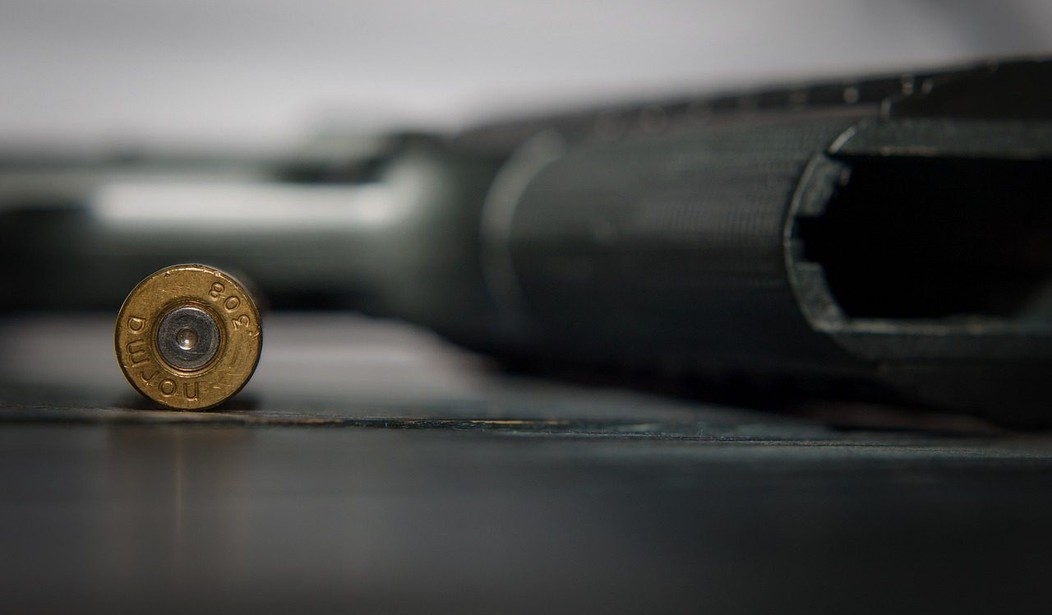If you asked even most gun folks to name a "smart gun" maker, just about the only name most would remember is Biofire. That's because the mainstream media has been touting the company as the new hotness in the gun world, even as most gun folks are, at best, apathetic about smart guns.
Many others are downright hostile.
Now, we've talked about Biofire a fair bit. Cam even sat down and chatted with the company's founder a while back.
Yet no one is doing more for Biofire's name recognition than the media itself, and now they're at it again.
Let's start with this one from NBC News:
The company behind America’s first biometric “smart gun” — one that fires only when gripped by authorized users — will face a crucial test in the coming weeks.
After decades of failed attempts by other manufacturers to bring a reliable smart gun to market, Biofire, a Colorado-based startup, says it’s shipping its first batch of 9 mm handguns equipped with fingerprint and facial-recognition technology by the end of the month. The company’s smart gun is designed to serve a very specific purpose: a weapon that can be quickly accessed to defend against a home intruder, but that can’t be used by anyone unauthorized, particularly children.
As Biofire markets its gun to firearm enthusiasts and skeptics alike, the company is walking a careful line to avoid the massive blowback from the gun-rights movement that derailed previous iterations of smart guns.
Gun control advocates have long seen biometric technology as a game changer for reducing gun violence, and Biofire has drawn their praise by emphasizing safety and the need to prevent children from accessing guns. At the same time, the company has built ties with the gun industry and opposes any government mandates to require biometric features in guns, trying to head off fears that the technology is a Trojan horse for gun control.
So far, Biofire’s approach has been received with a mix of cautious optimism, curiosity and distrust. But the most important question won’t be fully answered until the gun is in people’s hands: Does it really work?
“I don’t want to be the first guy to find out,” said Pierre Salomon, who runs a firearms training company in Massachusetts. “I don’t think the technology is there for me to be putting my life on the line — and my family’s life on the line.”
That's the problem, though, isn't it?
The truth is that Biofire, at least at last report, isn't sending out firearms for testing and evaluation for the gun journalism world, which means people are going to have to spend a whole lot of money on a firearm that has no track record to speak of.
Now, company founder Kai Kloepfer told Cam that, in time, they will send weapons out for journalists to put through it paces, but that's not exactly reassuring to people here and now.
Then, of course, there is the issue of mandates.
Yes, I know Biofire opposes those. That's a smart move on their part since the people most likely to buy guns are, you know, gun people and we're notorious for refusing to support companies that toe any anti-gun line.
But that doesn't mean mandates won't happen anyway. New Jersey already tried it, and if the law hadn't changed a few years ago, suddenly the only allowable gun would be the Biofire. Assuming that it's as viable as claimed.
The truth of the matter, though, is that it doesn't really matter all that much.
After all, while gun people are a big part of the gun market, the reality is that a lot of people who might want a gun but are terrified by news reports will likely buy a Biofire, also because of news reports.
I'm not sure if the company's PR department is run by a genius or whether the media is really just trying to push smart guns, but with all the free publicity, it's no wonder that the name is the only smart gun maker in the world just about anyone can think of.
And that would be the case even if it wasn't the only one supposedly close to sending out firearms.








Join the conversation as a VIP Member